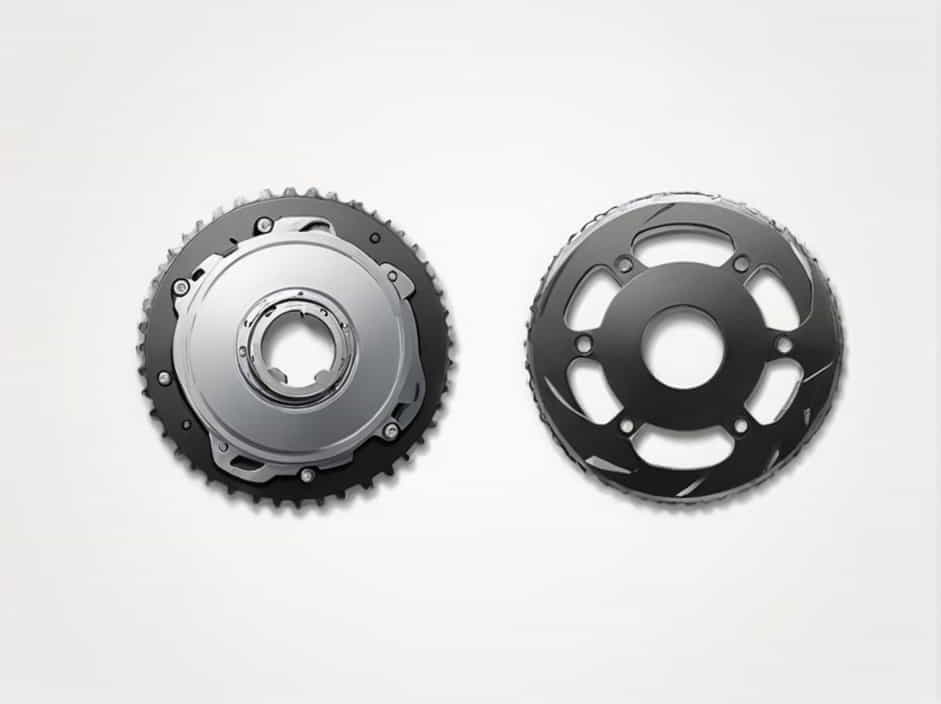When choosing a braking system for a bicycle, one of the biggest decisions riders face is between mechanical disc brakes and hydraulic disc brakes. Both options offer better stopping power than traditional rim brakes, but they function differently and come with unique advantages and disadvantages.
In this topic, we’ll compare mechanical vs hydraulic disc brakes in terms of performance, maintenance, cost, and suitability for different riding styles.
What Are Disc Brakes?
Disc brakes work by using calipers to squeeze brake pads against a rotating metal disc (rotor) attached to the wheel hub. This generates friction, which slows down the bike.
Unlike rim brakes, disc brakes provide better braking in wet conditions, improved modulation, and greater stopping power.
There are two main types of disc brakes:
-
Mechanical Disc Brakes – Use a cable system to activate the brake calipers.
-
Hydraulic Disc Brakes – Use fluid pressure to engage the calipers.
Mechanical Disc Brakes: How They Work
1. Basic Mechanism
Mechanical disc brakes operate through a steel cable connected to the brake lever. When the rider pulls the lever, the cable tightens, pulling the caliper arms and pressing the brake pads against the rotor.
2. Key Features
-
Uses standard brake cables and housing.
-
Requires manual adjustment over time.
-
Commonly found on entry-level mountain bikes, hybrid bikes, and touring bikes.
Hydraulic Disc Brakes: How They Work
1. Basic Mechanism
Hydraulic disc brakes use sealed fluid lines instead of cables. When the rider pulls the brake lever, hydraulic fluid (usually mineral oil or DOT fluid) transmits pressure to the calipers, pushing the brake pads against the rotor.
2. Key Features
-
Uses a sealed hydraulic system.
-
Self-adjusting as the pads wear down.
-
Commonly found on high-performance mountain bikes, road bikes, and e-bikes.
Mechanical vs Hydraulic Disc Brakes: Key Differences
1. Stopping Power
-
Hydraulic disc brakes provide stronger and more consistent braking power because hydraulic fluid transfers force more efficiently than cables.
-
Mechanical disc brakes rely on cables, which stretch over time, leading to reduced braking efficiency.
Winner: Hydraulic disc brakes.
2. Modulation and Control
-
Modulation refers to how well a brake system allows a rider to control braking force.
-
Hydraulic brakes offer better modulation, allowing for smooth and precise braking.
-
Mechanical brakes feel stiffer, making it harder to apply gradual braking force.
Winner: Hydraulic disc brakes.
3. Maintenance and Adjustments
-
Mechanical disc brakes are easier to maintain, as they use simple cables that can be adjusted or replaced easily.
-
Hydraulic brakes require occasional bleeding to remove air bubbles from the system, which can be complex for beginners.
Winner: Mechanical disc brakes.
4. Durability and Reliability
-
Mechanical disc brakes are more reliable in remote areas, as they can be fixed with basic tools.
-
Hydraulic brakes are more resistant to dirt and weather, but if they fail, they usually require professional servicing.
Winner: Tie, depending on usage.
5. Cost
-
Mechanical disc brakes are cheaper and found on more budget-friendly bikes.
-
Hydraulic disc brakes are more expensive, often featured on high-end bicycles.
Winner: Mechanical disc brakes for affordability.
6. Weight and Aesthetic
-
Hydraulic disc brakes are lighter because they don’t use heavy steel cables.
-
Mechanical disc brakes add weight due to their cable system and require more frequent adjustments.
Winner: Hydraulic disc brakes.
Which One is Better for You?
Choose Mechanical Disc Brakes If:
✅ You want a budget-friendly braking system.
✅ You prefer easy maintenance and adjustments.
✅ You often ride in remote areas where repairs must be simple.
✅ You ride casually and don’t require high-performance braking.
Choose Hydraulic Disc Brakes If:
✅ You need maximum stopping power for steep descents or fast riding.
✅ You want smooth braking modulation for better control.
✅ You don’t mind occasional maintenance and higher costs.
✅ You ride in wet, muddy, or extreme conditions.
Common Myths About Mechanical and Hydraulic Disc Brakes
1. "Mechanical Disc Brakes Are Just as Good as Hydraulic"
❌ False – While mechanical brakes are effective, they don’t match the power and precision of hydraulic systems.
2. "Hydraulic Brakes Are Hard to Maintain"
Partially True – Hydraulic brakes require bleeding but don’t need constant adjustments like mechanical brakes.
3. "Hydraulic Brakes Are Only for Mountain Bikes"
❌ False – Many road bikes, commuter bikes, and e-bikes now come with hydraulic brakes.
Both mechanical and hydraulic disc brakes offer advantages, and the best choice depends on your riding style, budget, and maintenance preferences.
-
For casual riders and commuters, mechanical disc brakes are a cost-effective and reliable option.
-
For performance riders, mountain bikers, and those who need the best braking power, hydraulic disc brakes are the superior choice.
Ultimately, choosing the right brake system will enhance your riding experience, safety, and confidence on the road or trail.
